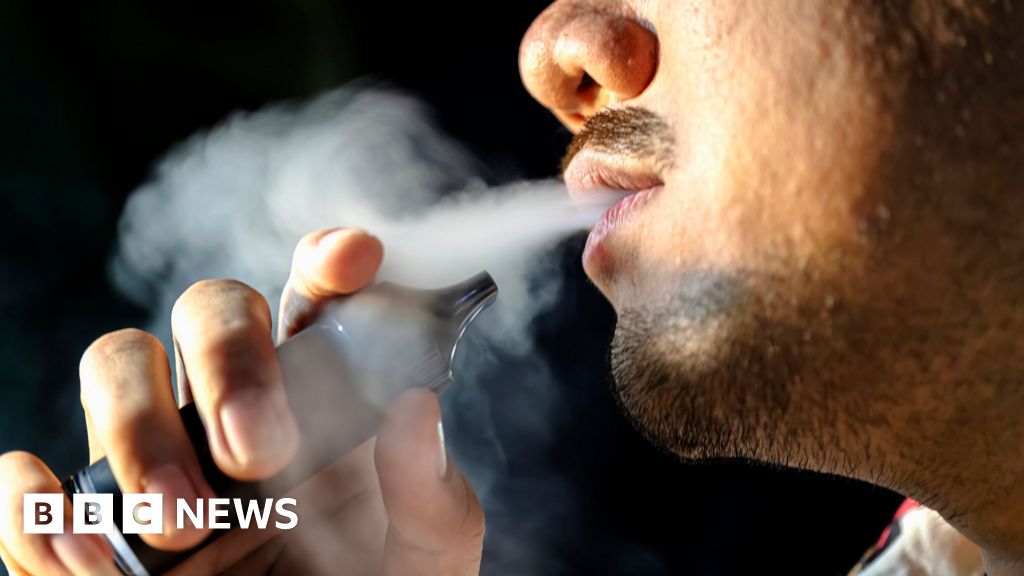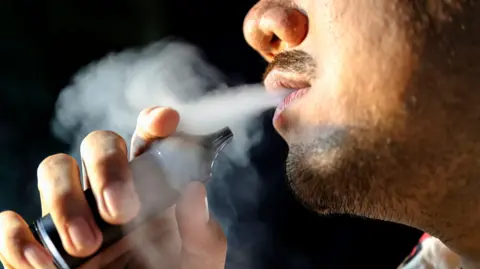Singaporean authorities have announced tougher penalties for vaping as they try to crack down on the increasing use of drug-laced vapes in the country. These include stiffer fines, longer jail terms, and even caning. Foreigners may also be deported. While Singapore was one of the first places in the world to ban vaping in 2018, the practice has persisted, and in recent months, the city-state has seen a rise in popularity of vapes laced with etomidate, an anaesthetic drug. This has caused widespread alarm in the country, which has some of the world's toughest drug laws.
In recent months, authorities have acknowledged the growing prevalence of etomidate-laced vapes, more popularly known as Kpods in Singapore. A test of a random sample of 100 seized vapes in July found that a third contained etomidate. Videos of teenagers and young adults acting erratically in public while vaping have also gone viral on social media, prompting concern among Singaporeans who widely support the country's tough penalties on drug trafficking and use.
Health Minister Ong Ye Kung stated that tougher laws were needed as 'vapes have become a gateway for very serious substance abuse.' The government has sharpened its penalties for vaping, reclassifying etomidate as a Class C controlled drug for six months, with new rules coming into effect on 1 September. Those caught vaping—even when using regular vapes—will face increased fines starting from S$500 (£288; $390) and state-mandated rehabilitation.
Suppliers of drug-laced vapes will face up to 20 years in jail and 15 strokes of the cane. Foreigners will not only face the same penalties but risk having their permits revoked and may be deported. The rules also apply to tourists, with plans to place signs throughout Changi Airport reminding visitors of the ban and vape disposal bins available. The crackdown is part of a broader public health campaign to combat substance abuse linked to vaping.
In recent months, authorities have acknowledged the growing prevalence of etomidate-laced vapes, more popularly known as Kpods in Singapore. A test of a random sample of 100 seized vapes in July found that a third contained etomidate. Videos of teenagers and young adults acting erratically in public while vaping have also gone viral on social media, prompting concern among Singaporeans who widely support the country's tough penalties on drug trafficking and use.
Health Minister Ong Ye Kung stated that tougher laws were needed as 'vapes have become a gateway for very serious substance abuse.' The government has sharpened its penalties for vaping, reclassifying etomidate as a Class C controlled drug for six months, with new rules coming into effect on 1 September. Those caught vaping—even when using regular vapes—will face increased fines starting from S$500 (£288; $390) and state-mandated rehabilitation.
Suppliers of drug-laced vapes will face up to 20 years in jail and 15 strokes of the cane. Foreigners will not only face the same penalties but risk having their permits revoked and may be deported. The rules also apply to tourists, with plans to place signs throughout Changi Airport reminding visitors of the ban and vape disposal bins available. The crackdown is part of a broader public health campaign to combat substance abuse linked to vaping.


















